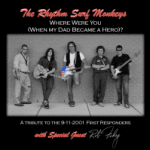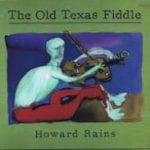Review: Bruce Cockburn – ‘Small Source of Comfort’
I’ve been listening to Bruce Cockburn since 1984. I read a review of a concert he had done in Chicago and I was intrigued, so I went out and found a cassette of Stealing Fire. I was captivated from the first notes of Lovers in a Dangerous Time and I’ve been listening ever since.
Bruce’s new release, Small Source of Comfort, is another worthy addition to the collection. Some reviewers have hailed it as a return to form and to his “folk” roots. While I would say that his last studio effort, Life’s Short Call Now, was somewhat of a disappointment, you can’t get much folkier than a live solo acoustic recording such as Slice of Life. To me, Bruce is working from the same sonic palette that he has been working with, to good effect, at least since 1991’s Nothing But a Burning Light. What’s new, or at least different here, are his collaboration with Jazz violinist Jenny Scheinman and his collaboration with Annabelle Chvostek on a couple of tunes. There are also five standout instrumental pieces. This is an unusually large number, although one or two instrumentals has become common over the last 20 years and more instrumentals have surfaced on some of the deluxe re-issues.
One thing that you can usually count on from Bruce is a strong opening track, which sets a tone and sometimes the theme for what follows: songs like Lovers in a Dangerous Time, Dream Like Mine, Night Train, Tried and Tested, If a Tree Falls, and Call it Democracy. Here, the song is Iris of the World. It reminds me a little of his song World of Wonders, especially the acoustic version on Slice of Life. It starts out with the mundane indignities and uncertainties of crossing a border in these post 9/11 days and how the minutiae that they check misses the bigger picture. That is followed by snapshot images from the road and the feelings that they spark. The third verse is kind of self-assessment, the kind of mental chatter that I can imagine myself getting into on a long solitary drive. Despite the indignities suffered in the passage, what comes through and what lasts is love. Driving is the source of many of the images that fuel the songs on the entire collection.
Call Me Rose is a pretty unique addition to the Cockburn catalog. I can’t think of the last time (if there ever was one) where he ventured into satire. This song has prompted some debate among reviewers and among the fans on the Humans group on Yahoo. While I can say that this is not great Cockburn, it is certainly intriguing. Despite the outrageous premise of Richard Nixon being reincarnated as a poor single mother in the projects, it doesn’t seem that far-fetched. Where it falls short is that it doesn’t really illuminate the condition of the single mother, and thereby is merely amusing rather than biting. Also, Richard Nixon seems like a pretty dated target for this kind of rumination. He also wasn’t that bad a President on the domestic front. He certainly didn’t advocate the undoing of the New Deal or even welfare. Perhaps having him return as a Vietnamese peasant in a sweatshop would have been more appropriate. Or just changing the subject to Richard Cheney would have been more delicious.
Bohemian 3-Step is the first of the very strong and engaging instrumentals, which is just guitar with a touch of light drums. Bruce provides the bass with his strong thumb. Radiance is the first tune that really highlights Jenny Scheinman. In contrast to the lyrics, the music is actually quite dark and mysterious with the violin and accordion giving it a European world-weary feeling. For me, this is not the kind of tune that Bruce’s vocals shine on. They come across as a little formal and stilted.
5:51 is a blues tune, another form that Bruce has used sparingly over the years. The last one I can think of is Soul of a Man from Nothing but a Burning Light. The “cops at the door in the middle of the night” harkens back to Peggy’s Kitchen Wall and the “diesel on the breeze” and ‘too much traffic in my brain” ties this song of waking up tired, aching and distracted to the road theme. Here, the vocals are more comfortable .
Driving Away is one of two collaborations with Annabelle Chvostek. The liner notes suggest that the lyrics were mostly written by Annabelle and I would say that they are more impressionistic than Bruce’s lyrics usually are. The listener has to fill in the blanks on the story (if there really even is one). The song is about leaving something or someone behind and the images are of longing and regret. Lois on the Autobahn is another instrumental, written for his mother who died last year. It’s a jazz tune supported by Jenny’s violin. The collaboration really shines on this piece. While the guitar work could stand on its own, it would really lose much of its beauty without the violin part.
Boundless is the second collaboration with Annabelle C. According to the liner notes, this was mostly lyrics by Bruce. This song is marked by strong religious and spiritual imagery and is probably the song (aside from Iris of the World) that many long-time fans will gravitate to. It is certainly the “deepest” song on the record, and open to many interpretations depending on your spiritual bent. I also catch an echo of Wait No More where he says that “Lightning’s a kiss that lands hot on the loins of the sky.” Here, Bruce says that he “feel[s] these serpents of desire ripple my skin like ropes of fire.” Perhaps to avoid getting too serious, Bruce places the humorous song, Called Me Back, right after this one. Humorous songs are another rarity in the Cockburn catalog. This is not to say that Bruce doesn’t have a sense of humor, just that he will never be mistaken for Loudon Wainwright or Jimmy Buffett. The song has some lyrical similarity to Anything Can Happen, from 1989’s Big Circumstance.
Comets of Kandahar is another instrumental showcasing Jenny Scheinman’s sometimes dissonant jazz violin over a strong, insistent drumbeat and, of course, Bruce’s steady guitar. There are also some vaguely Middle Eastern accents to some of the violin riffs. It was inspired by the planes taking off at night and Bruce described it as “Django meets John Lee Hooker.” The violin takes a more supporting role in Each One Lost, a simple folk melody about the ceremony for two dead soldiers at an airbase in the Middle East.
Parnassus and Fog is another guitar and violin collaboration, with some accordion and barely noticeable electric guitar from producer Colin Linden. Some of the guitar work harkens back to the instrumental style of late 70’s albums like Dancing in the Dragons Jaw. Ancestors is another instrumental. This time it is just Bruce and Gary Craig on Singing Bowl or chimes with some delay effects on the guitar. The album ends with the short song Gifts, something that Bruce wrote about 40 years ago. He used to close his live shows with it, but never thought it felt right to record it until now. It is a non-sectarian prayer of sorts, acknowledging our oneness with nature, with the rain and sunlight and rocky shore. The song of the rain becomes his song and his gift to us in the end.
After 31 albums it is a little difficult not to make comparisons. For example, you might ask if Bruce made a compendium of road songs similar to Speechless, would Driving Away or Iris of the World make the cut? The bottom line is that this is a good album by a consistently strong artist. I’ve made mention of connections to other albums and his past work, but this album stands on its own and would be a reasonable introduction to his music. For his long-time fans, this should have more than enough sonic and lyrical gems to satisfy.
cross posted at Jim Heald’s Blog




